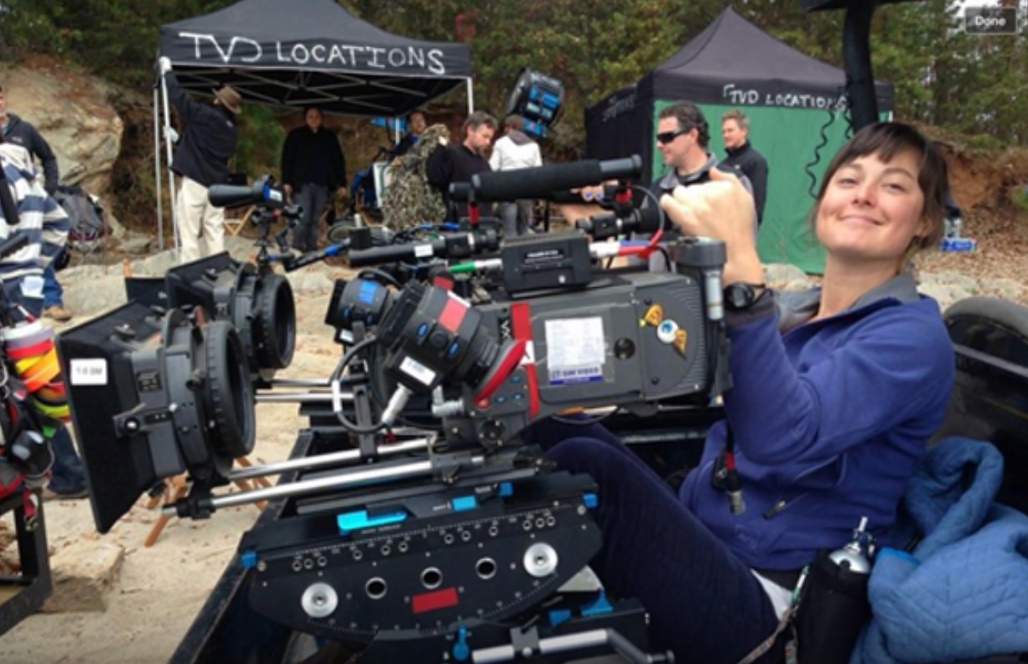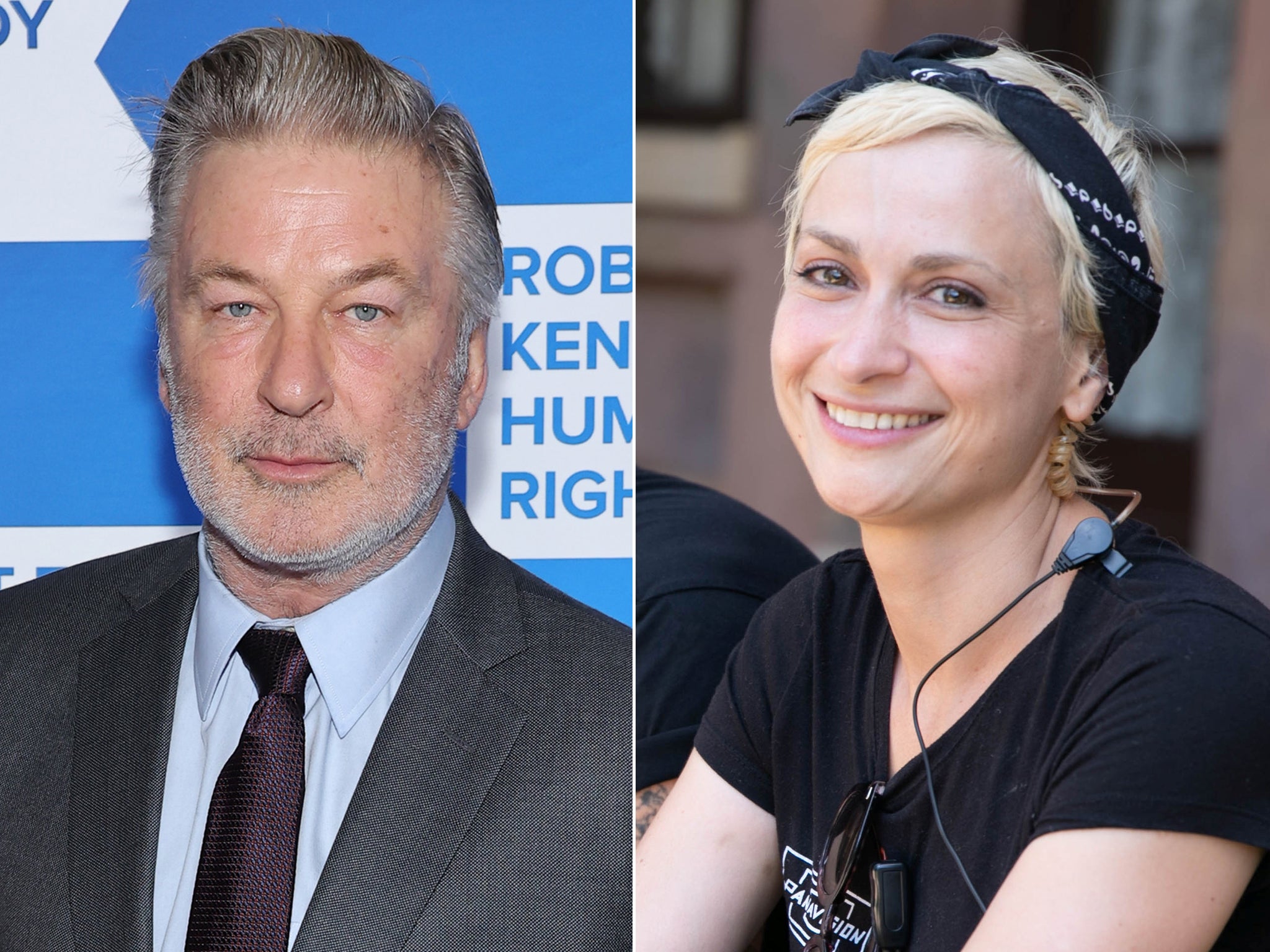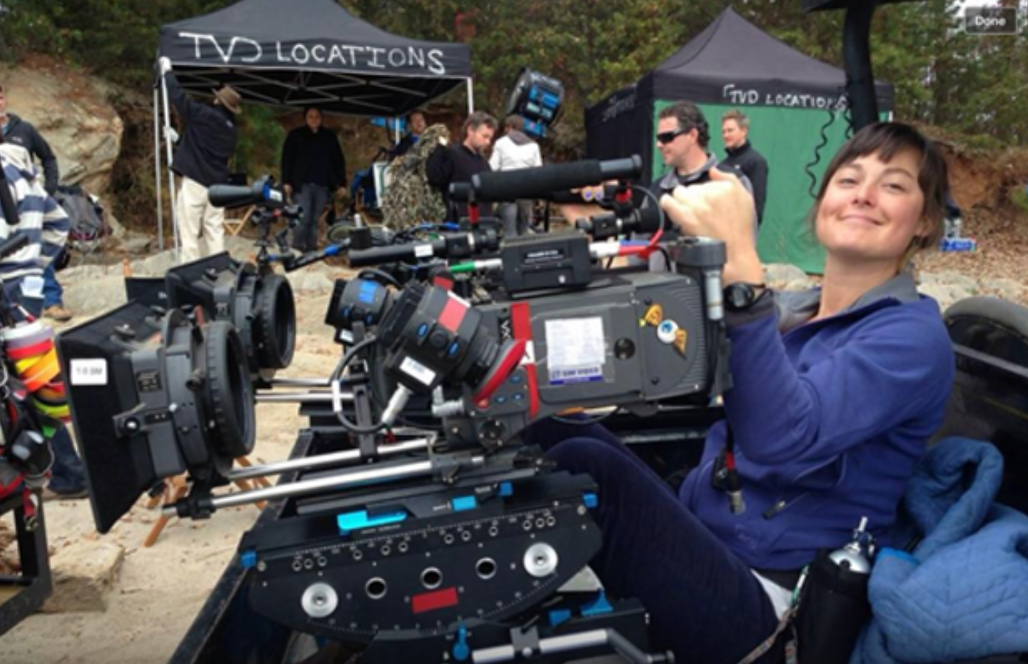His daughter was killed on the Midnight Rider set. He hopes the Alec Baldwin charges will spur change in film
Camera operator Sarah Jones’ film career was cruelly cut short when she was killed on the set of the 2014 movie Midnight Rider. Her father Richard Jones tells Bevan Hurley that involuntary manslaughter charges against Alec Baldwin may finally bring meaningful change to industry attitudes towards safety.


Your support helps us to tell the story
From reproductive rights to climate change to Big Tech, The Independent is on the ground when the story is developing. Whether it's investigating the financials of Elon Musk's pro-Trump PAC or producing our latest documentary, 'The A Word', which shines a light on the American women fighting for reproductive rights, we know how important it is to parse out the facts from the messaging.
At such a critical moment in US history, we need reporters on the ground. Your donation allows us to keep sending journalists to speak to both sides of the story.
The Independent is trusted by Americans across the entire political spectrum. And unlike many other quality news outlets, we choose not to lock Americans out of our reporting and analysis with paywalls. We believe quality journalism should be available to everyone, paid for by those who can afford it.
Your support makes all the difference.Amid the profound grief after the death of his daughter Sarah Jones on the set of the 2014 film Midnight Rider, Richard Jones resolved to put safety at the forefront of the film industry.
He and wife Elizabeth formed the Safety for Sarah non-profit to educate young filmmakers on the importance of following correct protocols on set, with the mantra: “Never forget, never again”.
In an interview on Thursday, Mr Jones told The Independent that the fatal shooting of Halyna Hutchins on the set of Rust in October 2021 had resurfaced all the pain he had felt after Sarah’s death. It left him wondering what more he could have done.
“It broke my heart,” Mr Jones said. “There were so many parallels to the situation with Sarah.”
On Thursday, New Mexico first judicial district attorney Mary Carmack-Altwies charged Alec Baldwin, 64, and the film’s armourer Hannah Gutierrez Reed, 25, with two counts of involuntary manslaughter over the shooting.
Assistant director David Halls pled guilty to negligent use of a deadly weapon and will receive a six month suspended sentence and probation.

Mr Jones told The Independent the charges would send a much-needed message to Hollywood.
“There needs to be accountability for this tragedy, and I’m glad to see that work is being done to hold people accountable,” he told The Independent. “It’s clear, as in the death of my daughter Sarah, there’s a chain of events that occurred. If any one of those professionals had done their job properly, it would have prevented this tragedy.”
‘Pure negligence’
From the beginning of filming on Rust in early October 2021, complaints about poor working conditions and safety on set plagued the production.
Members of the International Alliance of Theatrical Stage Employees (IATSE) threatened to stage a walkout over low pay.
Among them was Hutchins, who wrote in an Instagram post on 19 October: “Standing in #IAsolidarity with our @IATSE crew here in New Mexico on RUST.”
Crew members also raised concerns about firearm safety protocols and weapons handling onset.

Responsibility for weapons fell on the production’s armourer, Gutierrez-Reed.
There were reports that had been three misfires of prop guns on set in the days leading up to Hutchins’ death.
Then, hours before Hutchins’ death on 21 October, seven crew members quit in protest at the conditions.
According to affidavits, Baldwin was discussing a gunfight sequence with crew members when he unholstered the weapon and raised it in the direction of a camera, where director Joel Souza and cinematographer Hutchins were standing.
The gun went off, and a single bullet struck Hutchins in the chest before passing through her body and hitting Souza in the clavicle.
From what he’s read in FBI reports and in the media, it seemed obvious to Mr Jones that safety protocols were not being followed, just as had happened on Midnight Rider.
“There seems to be a clear train of evidence of pure negligence taking place. These professionals failed in their duties, terribly so,” he told The Independent. “As wonderful entertainment as these TV shows and movies are, they can be made without killing people. There’s no reason to kill people. It’s just negligence, not caring.”
Finding accountability
Sarah Jones, a 27-year-old camera operator from West Columbia, South Carolina, had been rising through the ranks of the TV and film industry in Atlanta, Georgia, in the early 2010s.
She’d got her first break in the TV show Army Wives, and had been hired for a biopic about rock and roll star Glenn Allman called Midnight Rider.
On 20 February 2014, a train traveling at 55 mph on a railroad bridge in Georgia stuck and killed her on her first day of filming.
Charges of involuntary manslaughter and criminal trespassing were brought against the director Randell Miller, his wife, producer Jody Savin, executive producer Jay Sedrish, and first assistant director Hillary Schwartz.
After initially pleading not guilty, Miller agreed to a plea deal in exchange for having charges dropped against his wife. He was sentenced to a year in prison, and 10 years probation, along with a $20,000 fine and 360 hours of community service.
Sedrish and Schwartz were sentenced to 10 years’ probation.
After the Rust shooting, Baldwin loudly proclaimed his innocence in numerous interviews and social media statements, blaming others on the set for Hutchins’ death.
His attorney Luke Nikas said in a statement that the decision to charge Baldwin “distorts Halyna Hutchins’ tragic death and represents a terrible miscarriage of justice”.
Mr Jones isn’t buying any of it. And after years of campaigning for better safety practices, he believes the actor’s celebrity status could finally bring about meaningful change.
“Because of Mr Baldwin’s notoriety and profile, the extra attention that he brings along with this tragedy, it has brought more attention to safety issues in the film industry. I can only hope that this tragedy might help increase awareness of the problems and get some positive results from it,” he said.
He expressed surprise that Seth Kenny, an Albuquerque prop supplier who provided ammunition for the movie, wasn’t charged.
“How that live ammunition got on set is a key question,” he said.
With regards to Halls’ plea deal, Mr Jones added that it seemed like he had gotten off lightly: “There’s some accountability there but it doesn’t sound like much.”
To change an industry culture, start with the youth
After Sarah’s death, people in the film industry approached Mr Jones and his family expressing concerns about workplace safety. They decided to form the non-profit Safety for Sarah to educate young filmmakers about safety.
The organisation offers grants to film students to learn proper safety techniques at several universities including Columbia University School of the Arts and University of Southern California School of Cinematic Arts.

The $2500 grants allow film schools to hire security on set, and teaches students of the importance of following industry guidelines and local and state laws.
“With Sarah, we took a tragedy and thought what good can come from it. And if we can save one life, it will be worth it. Of course we won’t know if we’ve saved one life, and that’s OK,” he told The Independent.
He said Sarah’s death had shaken the film industry, but younger filmmakers weren’t always aware of the tragedy.
“Young people in the industry need to know the story. If you want to change the culture of an industry, start with its youth,” Mr Jones told The Independent.
In any production, the last shot of the day is called the “martini shot”. His foundation came up with the idea to call the first shot “The Jonesy”, as a reminder for crews to make sure they have taken all safety precautions before starting their filming day.
“It’s there to make sure that they keep safety as a part of that day’s production. Not an afterthought, but a part of it,” he said.
Despite the work that Safety for Sarah has accomplished, Mr Jones said Hutchins’ death was a grim reminder of the need to continue educating film workers.
“We have a lot more work to do with our foundation, we haven’t done enough. That’s the bottom line,” he told The Independent.
He said he hasn’t spoken directly to Hutchins’ husband or son, but stands ready to offer support should they need it.
“Halyna’s husband and son have to walk their own path, they have to grieve in their own way,” he said. “There’s no one that can tell them how to do it. I would say if there’s something I can do, I’m certainly here.”



Join our commenting forum
Join thought-provoking conversations, follow other Independent readers and see their replies
Comments